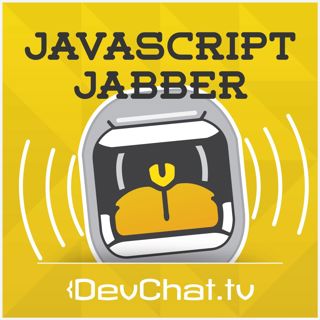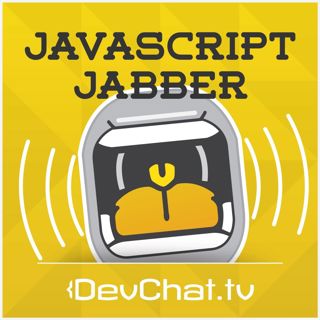
Building Agentic AI Workflows with Matthew Henage - JSJ 678
In this episode, we sat down with full-stack developer and AI innovator Matthew Henage, creator of WAOS.ai (Web App Operating System) and the incredible storytelling platform SpeakMagic.ai. This conve...
22 Maj 20251h 3min

Reinventing Web Development with Brisa: A Conversation with Aral Roca - JSJ 677
In this week’s episode, it’s just me — Charles Max Wood — and I’m joined by the incredibly sharp and open-source-loving Aral Roca, direct from Barcelona! Aral’s the creator of Brisa, a new full-stack ...
15 Maj 20251h 5min

Building Enterprise Infrastructure with Bit & AI with Gilad Shoham - JSJ 676
In this episode, I (Steve Edwards) flew solo on the mic but had the pleasure of hosting a truly insightful conversation with Gilad Shoham, VP of Engineering at Bit.Cloud. Gilad brought the heat from I...
8 Maj 202558min

Replacing Create React App: Why Create TS Router App Is the Future of React Development - JSJ 675
We’ve been diving into the evolving landscape of React app development and why tools like Create TS Router App (CTA) are stepping up to fill the gap left by the deprecation of Create React App (CRA). ...
2 Maj 20251h 30min

Empowering Devs and Innovators: Inside Vercel’s Impact, Feature Flags, and the Rise of v0 - JsJ 674
In this episode, Lee Robinson, who works at Vercel, discusses the company’s impact on web development despite its relatively small size. He explains their approach to empowering small, founder-led tea...
21 Apr 20251h 22min

Building 50 Apps in 50 Days: The Power of Boring Stacks with Kelvin - JsJ_673
In this episode, we dive into an engaging conversation with Kelvin, where we explore his approach to full-stack JavaScript development and the power of using simple, stable technologies to speed up ap...
14 Apr 20251h

Breaking Into Tech: Lessons from My Career Path - JsJ 672
This episode is a little different—thanks to a U.S. holiday, I’m flying solo. But that just means we get to have a one-on-one chat!I dive into my career journey—not to brag, but to offer insights for ...
7 Apr 202544min

Pioneers of Computing: A Journey Through Tech History with Bob Martin - JsJ 671
In this episode, we dive into a fascinating mix of tech history, personal stories, and entertainment recommendations. We chat with Bob Martin, who shares insights from his new book, offering a look ba...
1 Apr 20251h 9min






















